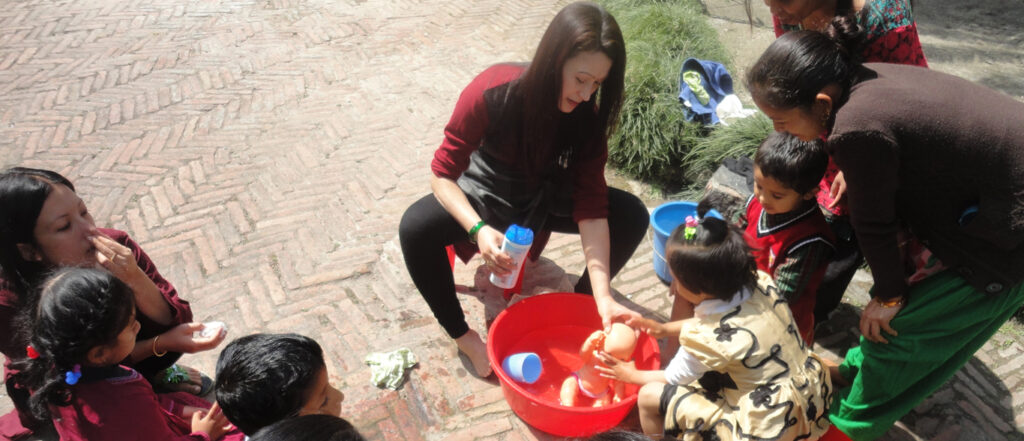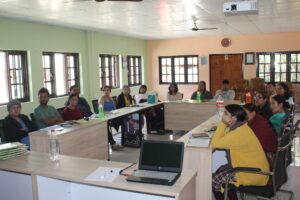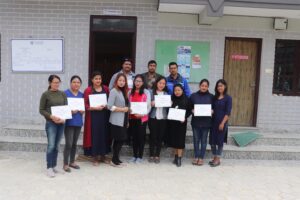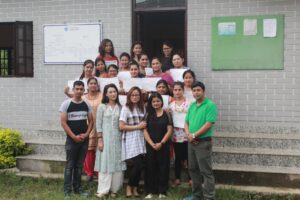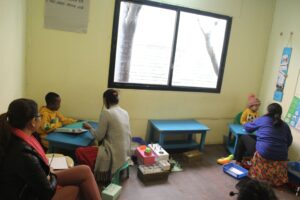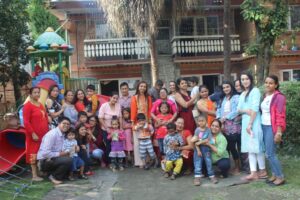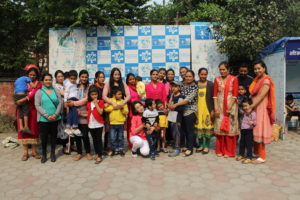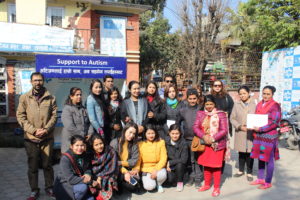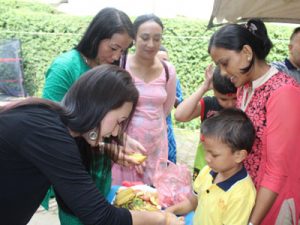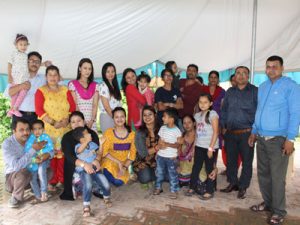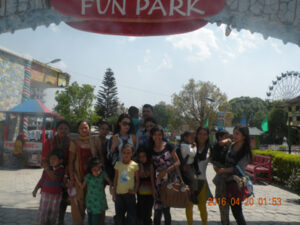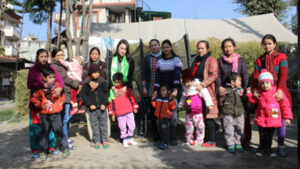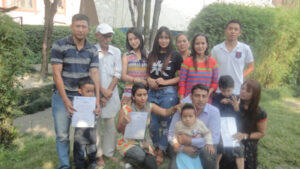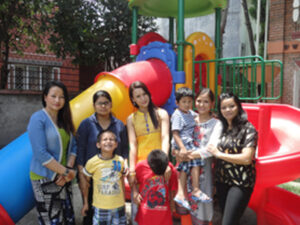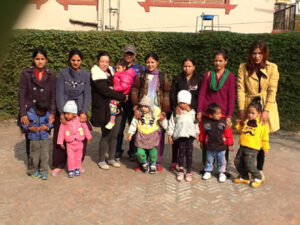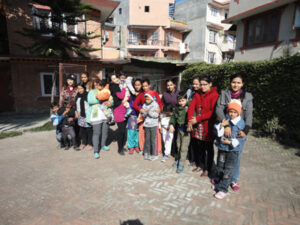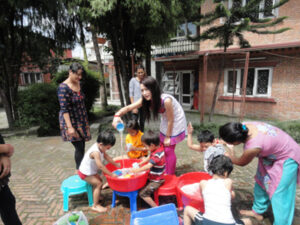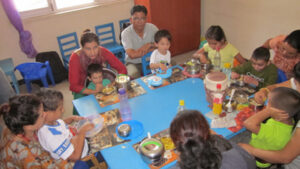Parents & Child Training Program
A short-term training to parents, specially mothers and children with autism; empowering them with knowledge of autism and also skill of ABA (Applied Behavior Analysis), TEACCH (Treatment and Education of Autistic and related Communication-handicapped Children), VBA (Verbal Behavior Analysis), Floor-time and Sensory Integration Therapy methods to apply on their own child, helping them to be the best teacher of their own child. Parent-Child training program (completed 35 groups) is ongoing training, nearly 3 to 4 training are organized per year, under the guidance of trained mothers from AFA (Action for Autism, New Delhi). The program seeks to maximize the benefits of the time that a parent spends with his/her child, teaching focused one-on-one intervention tailored individually to each child and taking into account the child’s strengths, emerging skills and weaknesses. More importantly the program gives parents the tool to understand their child, the child’s autism.

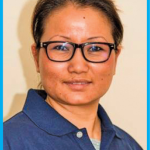

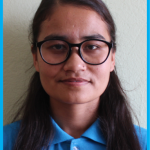
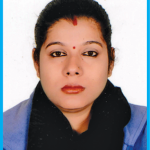
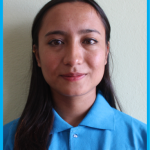
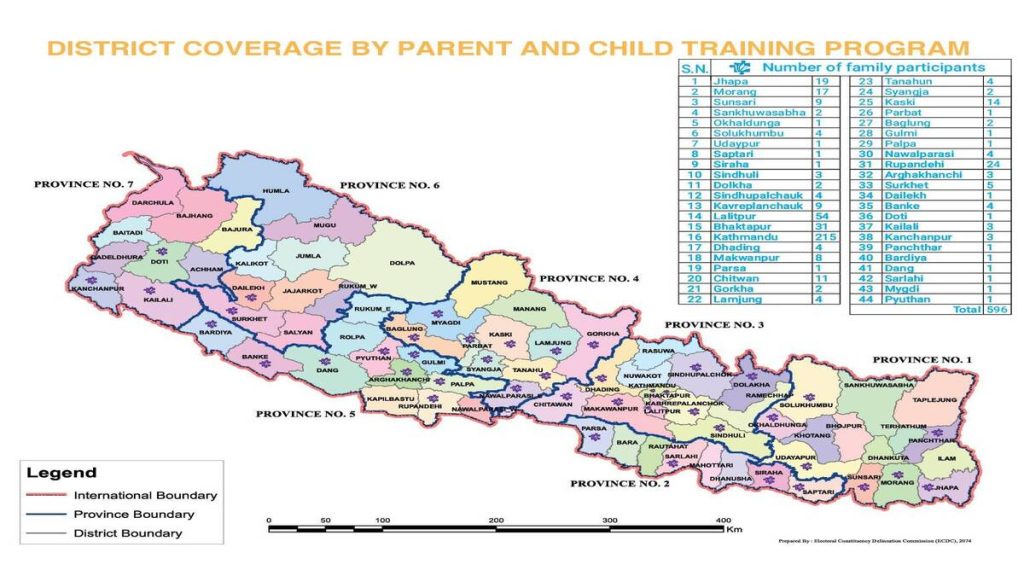
- 38th Batch
- 37th Batch
- 36th Batch
- 35th Batch
- 34th Batch
- 33rd Batch
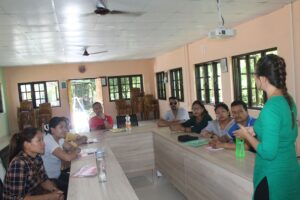
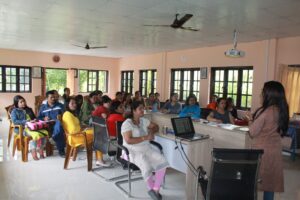
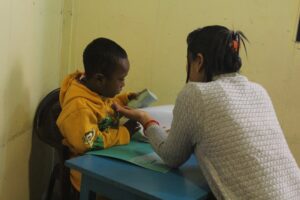
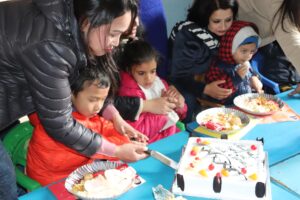
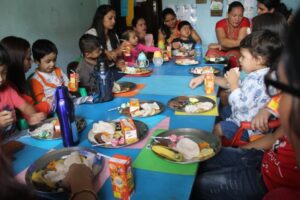
- 29th Batch
- 28th Batch
- 27th Batch
- 26th Batch
- 25th Batch
- 24th Batch
- 23rd Batch

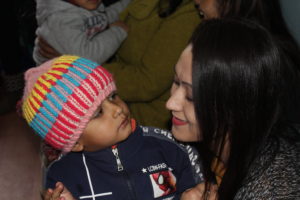
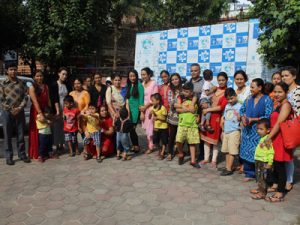
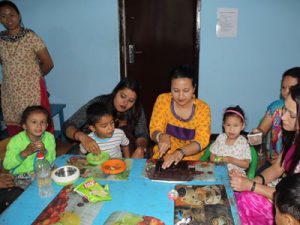
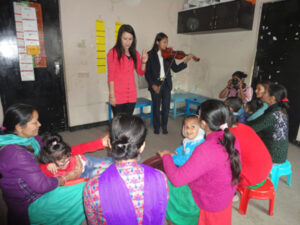
- 22nd Batch
- 21st Batch
- 20th Batch
- 19th Batch
- 18th Batch
- 17th Batch
- 16th Batch
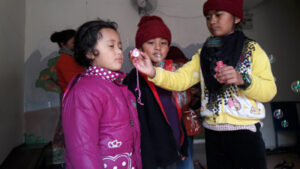
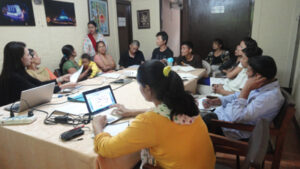
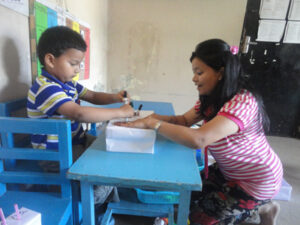
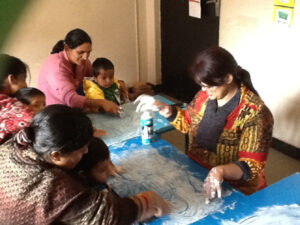
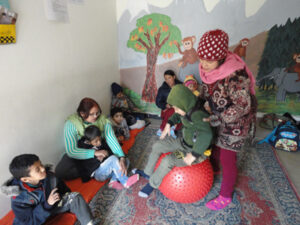
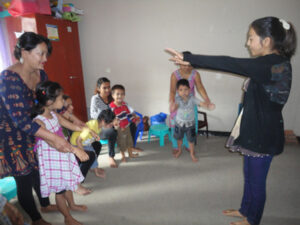
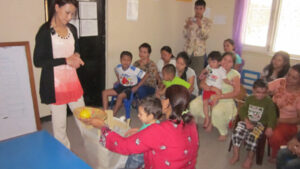
Introduction
When a child is diagnosed with autism parents may have many questions about autism, about how to teach their children and what their children’s autism will mean for themselves and for their children. They may wonder about their children’s future. The situation may be even more complicated when it is difficult for them to access special services for their children.
Parent and Child Training Program (PCTP) was started on the philosophy that parents can be the best teachers for their children when they are given proper inputs, guidance and support. This support and guidance along with theoretical and practical knowledge about teaching and behavioral management techniques are included in PCTP.
Principles
Every child with autism can improve and be helped to lead a dignified and meaningful life with consistent and appropriate intervention.
A child is better understood by his/her parents, so when the parents know how to use appropriate teaching strategies with their children, they can be the ideal people to help the children learn and grow.
When the parents know appropriate methods to teach their children, they are empowered to take an active role in shaping their child’s and family’s future.
When parents are taught strategies of relating to and educating their children, the parent child interaction becomes more meaningful, productive and enjoyable for both parent and the child.
Objectives
To help parents understand Autism, understand their child, the unique ways in which their child thinks and learn.
- To increase parents’ ability to effectively interact with and teach their children.
- To help the child progress through the teaching of essential skills.
- To empower parents, help them create a support system and subsequently reduce stress levels and improve overall family well- being.
Overview
The PCTP follows the same structure every day as order and predictability are important for children with autism, so it is necessary to have a routine that is followed consistently. Also it is important for the parents to be prepared and organized before session begins so that the child does not have to wait.
The first two weeks of the program are focused on understanding autism. There are detailed lectures given on autism, communication, the principles of behavior and its modification, structured teaching, teaching strategies, play skills, understanding sensory issues, creating social story, preparing for adulthood and thereby the actual time that the parents will work with the children will be much shorter to begin with, and will gradually increase as the session progresses. In the first two weeks of the program, the trainer will lead all group activities, whilst the parents will be given strategies to begin work with their child in a way that both parent and child enjoy and look forward to the interaction in one-on-one session.
By around the third week of the Program a timetable is set up whereby mothers are given charge of the group sessions during the week. For example, one of them will be doing the morning activity and another one may be doing the music time. In this way all the parents have a chance to plan and implement activities for all the children not just their own, and learning to anticipate and deal with the different needs of the children which will help them to be prepared if similar needs ever arise in their children in the future.
The session begin in the morning from 10:30 am and ends up by 2:30 pm. The day begins with assembly time, group activity focusing on gross and fine motor skills, one on one session as well as a snack time and ends with music time. After music time the children have a break while parents sit with the trainer for a discussion and feedback on the day’s activities.
Conclusion
“You may be thinking this all sounds very easy, but I can’t even get my child to sit still for five minutes to wash his face, how will I ever get him to cooperate enough throughout 4 hours of school day? This is not an uncommon concern. Most of the children who enroll in the PCTP have had no previous schooling and at first have a very difficult time adjusting to the new expectations. At the beginning the PCTP rooms echo’s with the sounds of crying children and exhausted parents. But in a few weeks of time, one already begins to notice a remarkable difference in the children’s behavior and the parent’s ability to encourage that behavior.
A combination of things leads to this change. The first is simply that the child gets used to the structure of the day and begins to learn what is expected of him/her. Change is difficult for everyone and is particularly hard for a child with autism who places high importance on structure and predictability. When parents are consistent the child is clear about what is expected and is less confused. Once the uncertainty and fear fades, the child will have an easier time adjusting to the new routine. The second is the parents’ growing ability to understand their child then developing and implementing the “what to do”.
The PCTP is about understanding own child, enjoying the child and helping child understand their parents and enjoy with them. This is an important foundation upon which we can help our children progress to the best of their abilities. The Program is also about knowing that the parents are not alone. By the end of the program they will realize that they have friends, buddies in their group who will be there for them to share joy at every step and to remind them that “Don’t lose hope, you never know what tomorrow will bring” when things are not going the way they would want them to.
Parent child training program is an ongoing training in which 4 training batches are organized per year by trained professionals. We enroll 23 parents along with their child and 3-4 as an observer parents in each batch. Each batch is 8 to 10 weeks long and divided into 3 groups, so a group will have 7-8 parents and children. Till now we have completed 52 batch of PCTP enrolling participants from different parts of the country. Mostly mothers participate but we feel proud to share that we have also trained fathers, siblings, uncle/aunts and grandparents.
TOT Parent and Child Training Program
Training of Trainers (TOT) of parent and child training program is advanced version of parent and child training program to train the parents to become trainer. This training program is the first human resource development program of Autism Care Nepal Society in order to replicate the Parent and Child Training Program in different districts of Nepal.
ACNS started the 1st batch of TOT PCTP on Kartik, 2074. Since then, we have conducted 5 batches of training program so far till date. 16 parents has been graduated from TOT training program representing from parents network groups of Kaski, Jhapa, Rupandehi, Surkhet, Gulmi, Chitwan and Kathmandu. After graduating from this training program PCTP has been started in all these districts which is one of the most important milestone of dissemination of ACNS services in different parts of Nepal.
